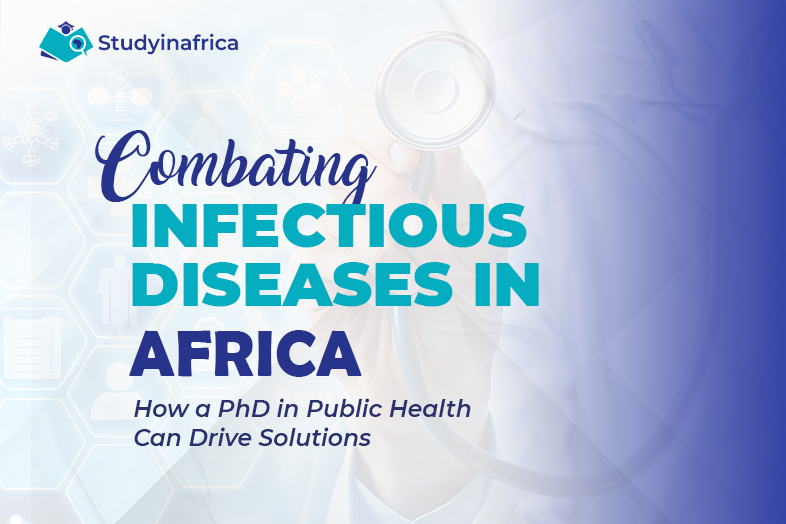
Blog Summary
Pursuing medical education in Africa presents a mix of promising opportunities and substantial challenges. Aspiring medical students encounter a range of obstacles, including financial constraints, limited resources, and infrastructural gaps, which can hinder their path to success. These medical education challenges require students to be resourceful and determined, as they work to overcome limited funding options, a shortage of trained faculty, and unequal access to essential facilities. This overview highlights the main challenges in African medical education and offers insights into strategies students can adopt to navigate these barriers and pursue their dreams in healthcare.
- Overview of Medical Education in Africa
- Common Challenges in Medical Education
- Funding and Financial Barriers
- Access to Medical Schools
- Infrastructure Limitations
- Faculty Shortages and Brain Drain
- Curriculum and Course Content Challenges
- Opportunities for Distance and Online Learning
- Competition for Admission and Entry Requirements
- Impact of Technological Barriers
- Globalization and Exchange Programs
- Career Paths for Medical Graduates
- Encouraging Change in Medical Education
- What is the biggest challenge of medical school?
- Conclusion
Overview of Medical Education in Africa
Africa’s medical education landscape is diverse, with numerous universities and programs training the next generation of healthcare professionals. Countries like South Africa, Kenya, and Nigeria are home to some of the best universities in Africa offering medical degrees. However, there’s a growing demand for medical professionals across the continent, making it crucial for students to understand the challenges they may face.
Common Challenges in Medical Education
The path to becoming a doctor in Africa comes with various challenges. Key challenges include scarce resources, financial limitations, and inadequate educational infrastructure. By understanding these barriers, aspiring students can better prepare themselves for a rewarding but demanding journey.
Funding and Financial Barriers
One of the biggest challenges is the high cost of medical education. Many students face significant financial pressure, as the cost of attending medical school is often unaffordable. Scholarships and other funding options can provide some relief, but access to these opportunities is limited. For students exploring medical programs, finding ways to finance their education is a critical first step.
Access to Medical Schools
Access to medical schools varies widely across regions. Many students face obstacles due to MBChB entry requirements and the competitive nature of medical school applications. Some regions, especially rural areas, lack easy access to medical institutions, forcing students to move far from home or even out of the country.
Infrastructure Limitations
In many African medical schools, the lack of infrastructure is a major hurdle. Some universities lack proper facilities and essential equipment, which directly impacts the quality of education. With limited laboratories, libraries, and clinical resources, students may find it challenging to get hands-on training, a crucial aspect of medical education.
Faculty Shortages and Brain Drain
Faculty shortages, compounded by the “brain drain” phenomenon, leave many African medical schools struggling to find qualified instructors. Brain drain occurs when highly skilled professionals move abroad for better opportunities, leaving fewer mentors and educators. As a result, students have limited access to mentorship and practical guidance, which are crucial for medical training.
Curriculum and Course Content Challenges
Medical schools in Africa often struggle to keep curricula updated with global standards. This affects programs like the MBChB course outline which must be aligned with both local and international healthcare needs. Students might face outdated or incomplete course content, these challenges can impede their ability to perform effectively in a contemporary healthcare setting.
Opportunities for Distance and Online Learning
As an alternative to traditional programs, distance education in Africa is gaining momentum. Many students are now exploring online education in Africa as a way to overcome geographical and infrastructural barriers. Distance learning universities in Africa can provide more flexible and accessible education options, particularly in regions where there are fewer physical medical schools.
Competition for Admission and Entry Requirements
Getting into medical school in Africa is becoming increasingly competitive. High demand and limited spots mean students need to excel academically and prepare strong applications. Understanding how to apply for MBChB programs and meeting entry requirements are essential steps for aspiring students.
Impact of Technological Barriers
Access to digital resources is limited in some regions, making it challenging for students to stay up-to-date with medical advancements. However, technology could play a crucial role in transforming medical education, especially through online courses and digital resources, which could bridge some of the existing gaps.
Globalization and Exchange Programs
International partnerships and exchange programs provide valuable learning experiences. These programs allow African medical students to gain exposure to advanced healthcare systems and practices abroad, which they can bring back to improve healthcare in their communities.
Career Paths for Medical Graduates
After completing an MBChB, graduates have several MBChB career options available to them, from practicing general medicine to specializing in fields like surgery, pediatrics, or psychiatry. The choice of specialization often depends on local healthcare needs, but navigating postgraduate medical training can be challenging due to limited residency options and high demand.
Encouraging Change in Medical Education
To address these challenges, several initiatives are underway to improve medical education in Africa. Healthcare infrastructure, faculty training, and curriculum development are receiving investments from both governments and private organizations. These efforts aim to make medical education more accessible and effective for the next generation of African healthcare professionals.
What is the biggest challenge of medical school?
The biggest challenge of medical school is often the intense workload and time commitment. Students face a rigorous curriculum, with up to 80 hours a week devoted to lectures, labs, and clinical rotations, demanding exceptional focus and discipline. According to a recent study, 56% of medical students report burnout symptoms due to the high demands of their education. The emotional toll of handling life-and-death situations and patient care adds significant pressure, with one in four medical students experiencing depressive symptoms at some point during their studies.
To navigate these challenges, students can focus on building resilience through a balanced approach that includes regular breaks, physical exercise, and adequate sleep. Many medical schools, including some of the best universities in Africa, now offer wellness programs and counseling services to support mental health; taking advantage of these resources can make a notable difference. Peer support groups can also provide a sense of camaraderie and understanding, helping students share their experiences and coping strategies. Additionally, time-management techniques, such as prioritizing tasks and setting realistic study goals, can help students maintain a sustainable pace. This balanced approach equips students with the tools to manage stress, build endurance, and safeguard their well-being throughout their medical education journey.
Conclusion
Medical education in Africa presents numerous challenges, from financial constraints to faculty shortages and outdated infrastructure. However, aspiring students who are aware of these obstacles can better prepare for a challenging yet rewarding career in medicine. Many of these challenges are being addressed through online education in Africa, which has opened new pathways for students to access high-quality training without geographical barriers. Through determination, resourcefulness, and the backing of advancing educational programs, the next generation of African healthcare professionals can overcome these obstacles and create a lasting impact on healthcare throughout the continent.




